The future of 'Naya Pakistan'
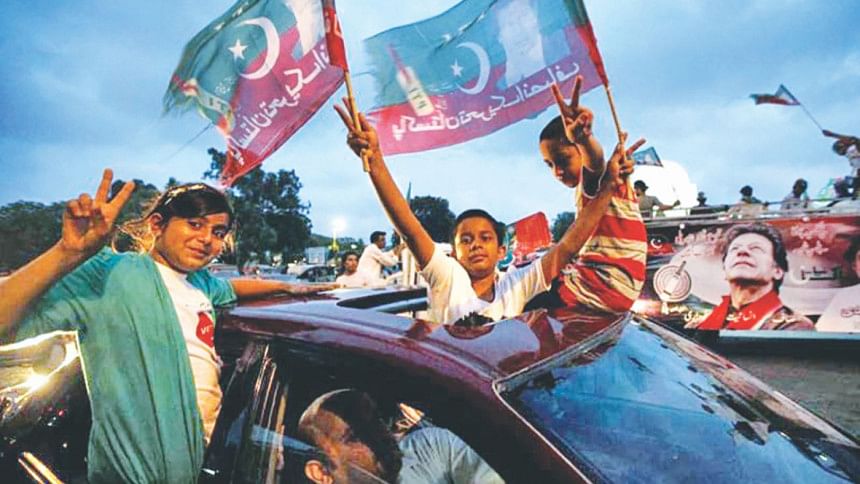
The "second democratic transition" in Pakistan was marred with pre-poll suicide attacks which killed three contestants as well as scores of their supporters especially in Quetta. Though the election day didn't see much violence, the electoral exercise itself was mired in controversy for alleged pre-poll rigging. A number of political parties including Pakistan Muslim League-Nawaz (PML-N) and Pakistan Peoples Party Parliamentarians (PPPP), as well as Muttahida Majlis-e-Amal (MMA) and Muttahida Qaumi Movement (MQM-P) have united in censuring the Election Commission of Pakistan (ECP) for conducting an election that they say wasn't free and fair. Each of the political parties alleged that their polling agents were thrown out of the booths and they were not given the Form 45 which provides details of the valid and invalid votes polled, party position, and have the signatures of the polling agent as well as election officers. The request made by the parties to extend the polling time by an hour beyond the fixed deadline of 6 o'clock had also been rejected by the ECP. However, what led to the fears that the election would not be free and fair and would be rigged in favour of Imran Khan's Pakistan Tehreek-e-Insaf (PTI) were as follows:
Before the July 25 election, the Supreme Court of Pakistan gave several decisions intended to cripple the then ruling PML-N which was perceived as a main obstacle in the way of Imran's political ascendency. While the judiciary did not find any evidence of corruption in the Panama investigation that could nail Nawaz Sharif, it disqualified him from prime ministership by invoking articles 62 and 63 for not being "sadiq" and "ameen" evidenced by his failure to disclose his earnings from a Dubai-based company owned by his son in the nomination paper for the 2013 election. This is a salary he never received.
The Avenfield case, in which he and his daughter Maryam were finally convicted and sent to jail, also has several legal loopholes. These factors notwithstanding, what seems to have influenced the voters was the charges of corruption against the Sharif family. This tarnished the image of the PML-N as well while portraying Imran Khan as "sadiq" and "ameen". This worked well in the election as far as the perception of the people is concerned. This is despite the fact that Imran Khan did not hesitate to welcome the "electables" with questionable integrity and equally corrupt individuals into the party fold to improve his chances of becoming the prime minister of Pakistan.
It is important to note that after the 2011 impressive rally in Minar-e-Pakistan failed to deliver the "tsunami" in 2013, Imran started preparations for the 2018 election. He raised the issue of rigging in 2013 and took to the streets. The deft street politics or dharna politics that PTI demonstrated by seizing Islamabad in 2014, with the much-vaunted "Freedom March" with the help of Pakistan Awami Tehreek (PAT), crippled Islamabad for four months and raised the prospect of a military takeover. He successfully exploited the Panama leaks to start another dharna in November 2016 before the Supreme Court assured that it would look into the issue of corruption.
Earlier, Nawaz Sharif's offer to appoint a commission under a retired justice of Supreme Court was rejected by the opposition and finally the Supreme Court constituted a commission to look into the cases of corruption. The interesting part is, two members of the commission were from the Inter-Services Intelligence (ISI) and the Military Intelligence (MI) and the manner in which the investigation was conducted, and the resultant verdict delivered, made it clear that the Sharif exit is choreographed by the powerful military establishment supported by the judiciary and facilitated by the PTI. The rest is history.
The military's finger prints became more visible after the Panama case and even more so after the "Dawn Leaks". The Geo TV was blocked in 2014 after Hamid Mir pointed the finger at the ISI for orchestrating a near-fatal attack on him for his views, and in 2018, it was pulled off the air after it broadcast programmes critical of the "Bajwa doctrine". Similarly, Pakistan's largest circulated newspaper Dawn complained that its circulation was being interrupted after Sharif gave an interview to the newspaper, accusing the army of not taking action against the perpetrators of the Mumbai attack and holding it responsible for the poor international image of the country. The electronic media along with the vernacular media launched a systematic campaign against Sharif. Many think that Sharif's interview was the final nail in the coffin and resulted in his losing the chairmanship of his party and disqualification from the election for life. The statement of Justice Shaukat Aziz of Islamabad High Court, who openly said that the country's premier intelligence agency pressurised the judiciary to convict the former prime minister and his daughter in a highly questionable corruption case just before the election, proved what was feared all along.
The defection of PML "electables" in South Punjab to PTI and forcing of some PML-N legislators to stand as independents only heightened the apprehension about the fairness of the election. Nawaz Sharif, who had managed to draw people to his vastly-attended election rallies on the slogan of "vote ko izzat do", was finally convicted in the corruption case and sentenced to jail, thus eliminating him from the campaigning process. The PTI's electoral success in Karachi is also attributed to the systematic decimation of the MQM and division within the party—allegedly a handiwork of the military establishment.
The July 25 election has some interesting results. Though the PTI does not have a clear majority in the National Assembly and has to depend on small parties for support, the tussle will be for controlling Punjab where the PML-N has received 127 seats and the PTI has 122. Controlling Punjab will be crucial for the party which is going to form a government in Islamabad. The PML-N has chosen to take the parliamentary route to oppose the PTI rather than taking to the street. In spite of losing power, the PML-N will emerge as a formidable opposition if it is not able to form the government in Punjab.
The main challenge would be whether the PTI can deliver a "Naya Pakistan"—one that is corruption-free and sensitive to the expectations of the people. With questionable "electables" within its rank, it will not be easy for it to do so. Its performance in Khyber Pakhtunkhwa is evidence enough that good governance would pay electorally. The PTI is going to inherit a stagnant economy and a mounting debt burden which will force the government to approach the IMF. While surely there will be questions raised on PTI's dramatic swelling of electoral fortune which saw the party from winning 1 seat in 2002 and 28 in 2013 to 115 in this year's National Assembly election, the real test of stability would be to what extent it would be able to influence foreign policy and tackle the problem of terrorism at home. That is where the seeds of discord between the civil and the military lie.
Smruti S Pattanaik is a Research Fellow at the Institute for Defence Studies and Analyses (IDSA).



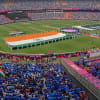
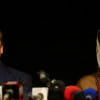
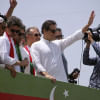
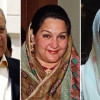
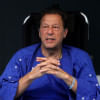


Comments